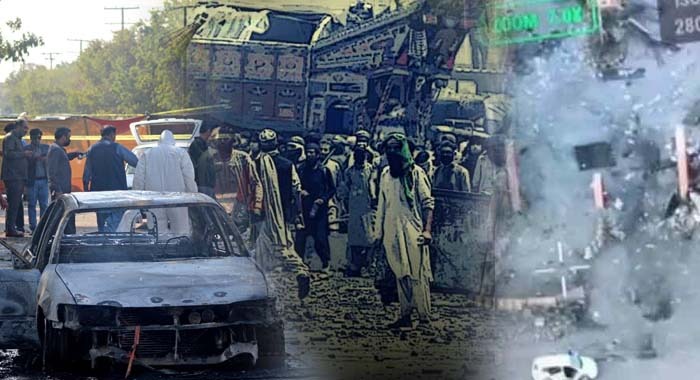Muhammad Haseenullah
Recent attacks in Wana and Islamabad have starkly highlighted the lethal consequences of narco-terrorism, a hybrid threat where illicit drugs, extremist financing, and cross-border complicity converge. These cowardly attacks demonstrate that the shadow economy of narcotics is more than a criminal enterprise; it directly funds terrorism, targets civilians, and challenges Pakistan’s sovereignty. Yet, the bravery of security forces and the resilience of civilians, including cadets in Wana, has turned the tide, proving that Pakistan’s frontline defenders and its fearless youth remain undeterred.
The Narco-Terror Mechanism:
The drug trade begins with cultivation in secure valleys, moves through trafficking routes protected by armed groups, and culminates in urban markets that fund the next wave of violence. Money extracted under pretexts such as “protection fees” flows across borders to sustain militancy.
This illicit economy functions as a shadow state, enabling attacks like those recently witnessed in Wana and Islamabad, and corroding Pakistan’s internal stability. Foreign-backed terror networks exploit these revenues, turning drugs into both a weapon and a funding mechanism.
Pakistan’s Frontline Role and Sacrifices:
Over the years, Pakistan’s security personnel, law enforcement officers, and civilians have paid a heavy price confronting this menace. Operations in Tirah Valley and adjoining areas have destroyed drug fields, neutralised militants, and intercepted trafficking lines. The recent heroic rescue of cadets in Wana is a vivid example of the sacrifices and courage displayed daily, showing how security forces and civilians continue to protect the nation even under direct threat. Yet, each success reveals the scale of the challenge — a deeply entrenched system nourished by regional instability, cross-border complicity, and the flow of illicit narcotics.
The Broader Stakes:
For the Economy: Billions of rupees circulate outside legitimate channels, weakening national revenue and indirectly financing terror.
For Society: Drug addiction is consuming Pakistan’s youth, the nation’s most valuable resource, while militancy exploits vulnerabilities created by narcotics.
For Security: Every shipment that slips through strengthens the enemy’s capacity to strike again, directly threatening civilians, institutions, and national cohesion.
Breaking the Chain:
To protect Pakistan’s sovereignty, the entire chain must be dismantled; not just the fields or couriers, but the financiers, intermediaries, and political facilitators. The state must continue its offensive through:
Comprehensive financial investigations and asset seizures;
Enhanced surveillance across all transit points;
Economic rehabilitation for affected communities;
Public mobilisation against narcotics consumption and trafficking;
Direct coordination between counter-narcotics, intelligence, and counter-terrorism units to prevent attacks financed by drugs.
Each interdiction weakens the capacity for attacks like Wana and Islamabad, proving that narco-terrorism is not a distant threat, but an immediate danger.
The National Imperative:
The fight against narco-terrorism is a fight for Pakistan’s future. It is not peripheral; it defines national integrity and international standing. The youth who fall prey to drugs are not just individual victims — they are being targeted to weaken the state from within. Conversely, the courage shown by cadets and civilians in Wana demonstrates that a resilient generation can defy terrorist designs, ensuring that fear and terror never take root.
The recent wave of cowardly attacks in Wana and Islamabad is a stark reminder that narco-terrorism and militancy are two sides of the same coin. Pakistan’s security forces, together with its fearless youth and vigilant citizens, have shown that terrorists cannot intimidate a nation prepared to defend itself. Breaking the narco-terror nexus is both a moral and strategic imperative; a fight for sovereignty, for the protection of the next generation, and for regional stability. Every citizen, policymaker, and defender of the nation has a role to play. Inaction would embolden networks seeking to exploit drugs and terror; perseverance will ensure a secure, resilient, and sovereign Pakistan, free from the poison that funds violence and destroys hope.





